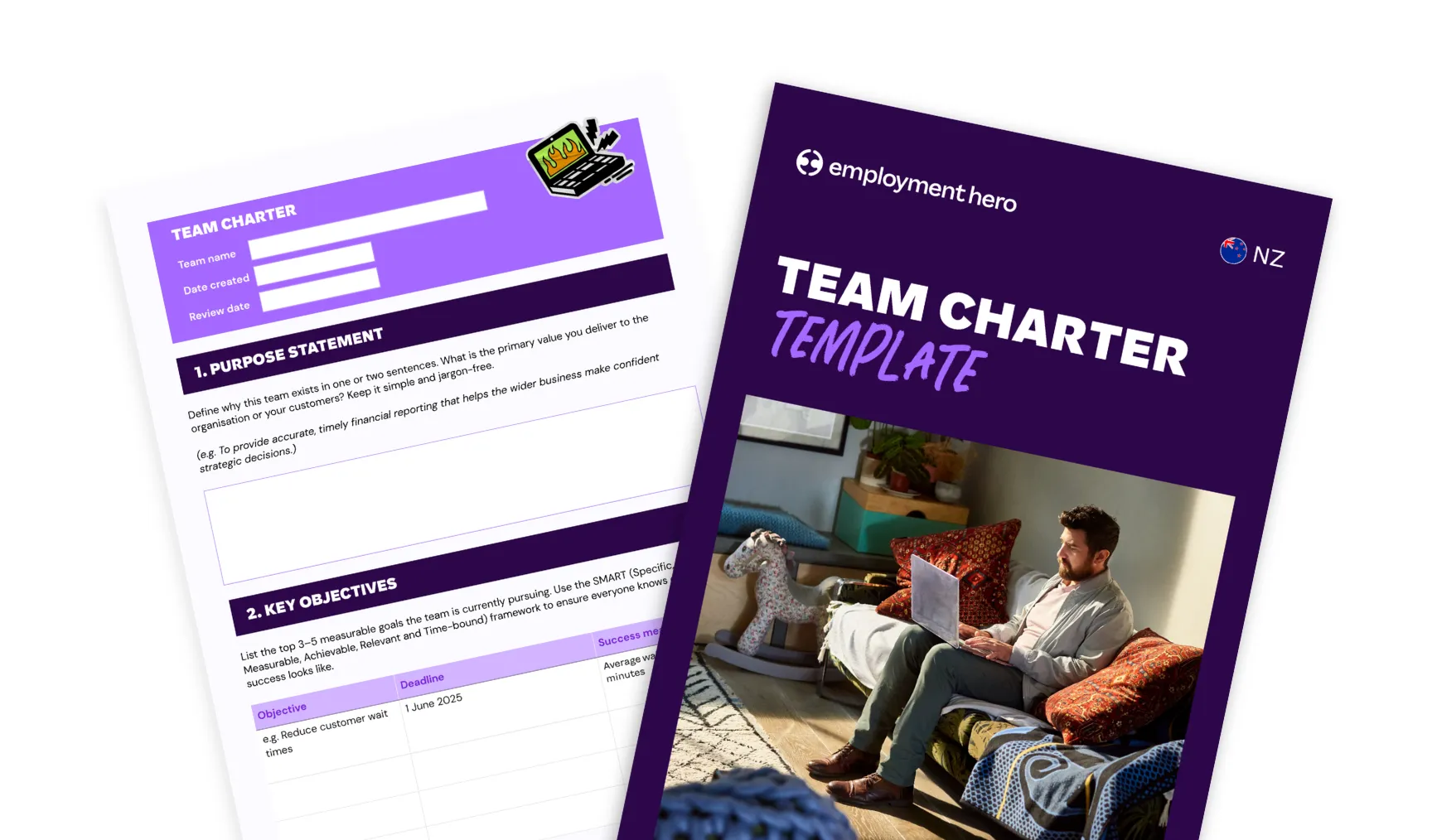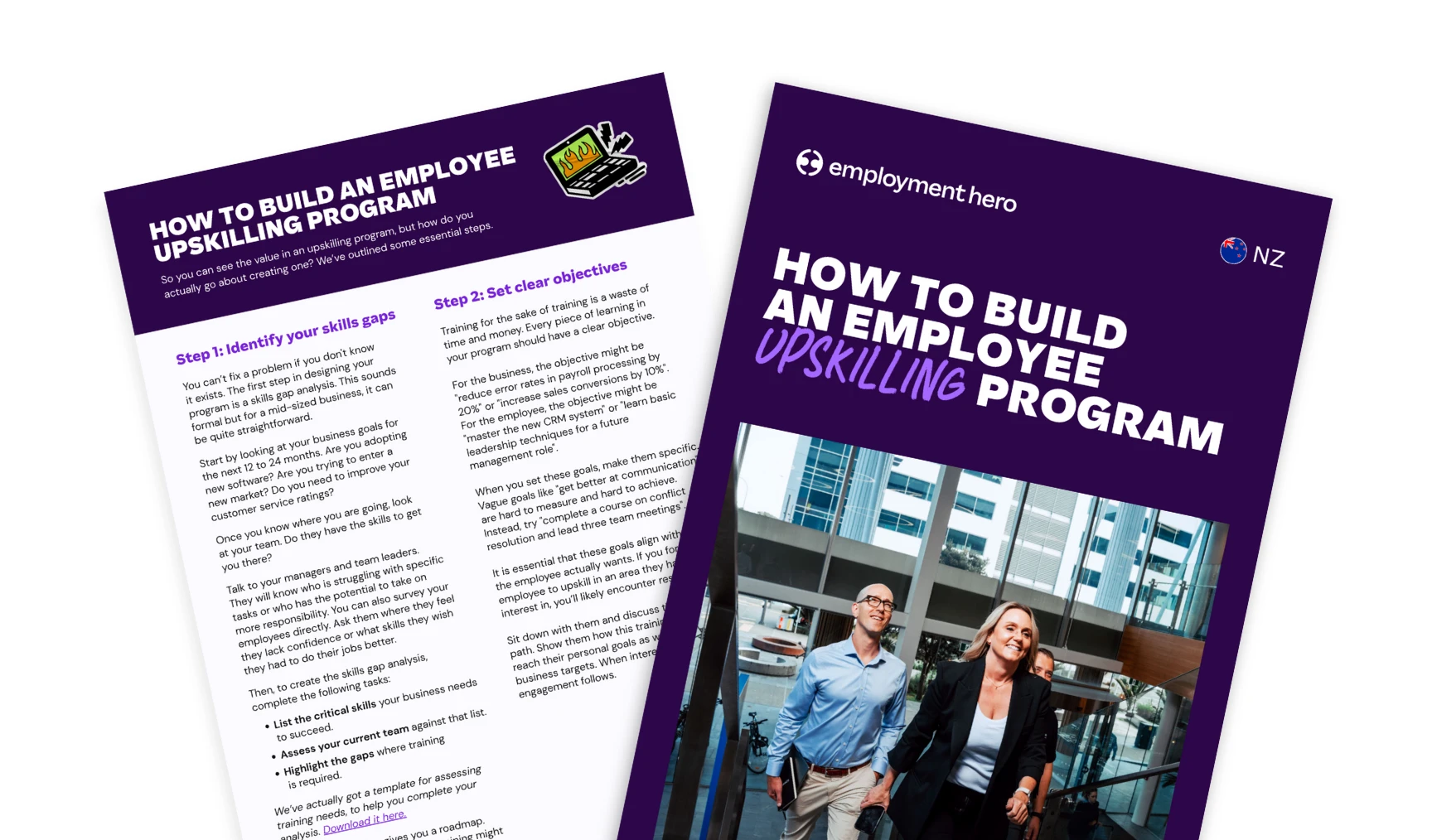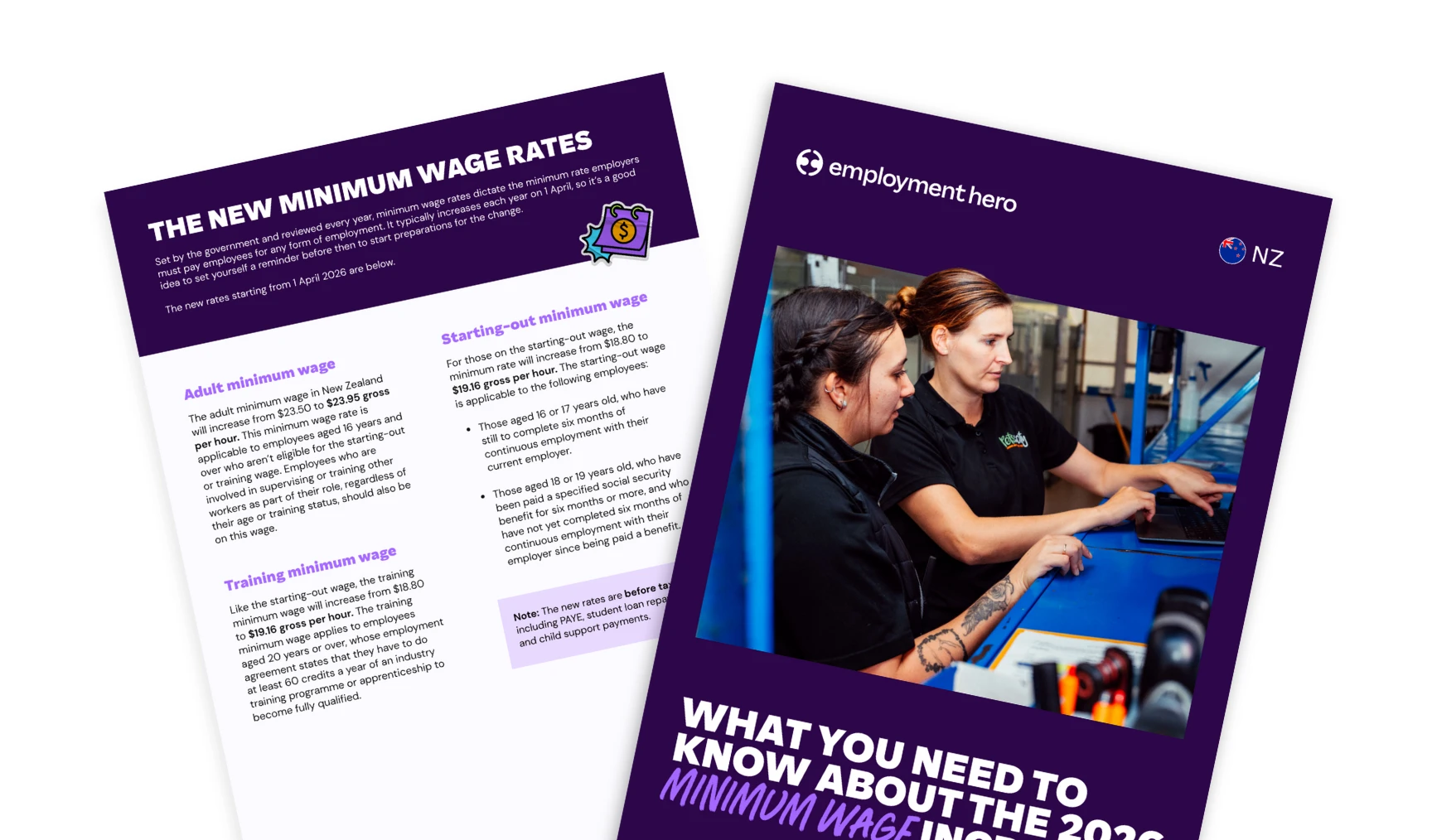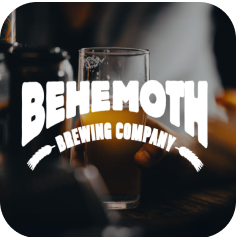Workplace Social Events Policy Template
Published
Workplace Social Events Policy Template
Looking to create clear guidelines for your company’s social gatherings that protect both your business interests and your team?
Your workplace social events policy sets the foundation for enjoyable team get-togethers, while ensuring they remain professional.
What’s covered in this template?
As a company, you may organise staff social functions that bring your team together in various settings, whether on work premises or at external venues. Whilst these functions are designed to be fun, they remain professional extensions of your workplace. That means you need clear guidelines on expected behavioural standards.
Our fully customisable template gives you the framework to build staff morale and positive working relationships, whilst ensuring everyone is safe and acts professionally.
Download the template by filling in the form on the right.
What is a workplace social events policy?
A workplace social events policy is a formal set of guidelines that governs how your company organises, manages, and conducts social functions in and outside the workplace. This policy helps establish clear boundaries between employees’ personal lives and their professional responsibilities during company-sponsored gatherings.
It’s your roadmap for ensuring that social activities strengthen your business culture, rather than complicate it. The policy outlines expectations for behaviour, alcohol consumption, social media usage and other key aspects of workplace social interactions.
In New Zealand, where workplace culture often embraces social connection, having robust guidelines can help prevent potential workplace conflict issues before they arise.
Understanding employee personal conduct
At workplace functions, the line between casual socialising and staying professional can easily blur.
Consider this scenario: A team member shares photos from your company’s year-end celebration on their personal social media account. While meant in good spirits, the images show colleagues in unprofessional situations after excessive drinking. Potential clients viewing these posts might question your business’s professionalism, while other employees might feel their privacy has been compromised.
This example shows why clear guidelines outlining professional responsibility during social gatherings is essential. When developing your policy, focus on helping staff understand that even in relaxed settings, they represent your organisation.
Your policy should address specific New Zealand workplace contexts, including how employees interact with clients or suppliers who might attend functions, appropriate conversation topics and respectful behaviour that aligns with your company values, even when the event extends beyond normal business hours.

Is employee behaviour the responsibility of the company?
It’s a shared responsibility between the company and the employee, so your company does bear responsibility for employee behaviour at workplace functions. Employment New Zealand states that employees have a right to a safe working environment and one that is free from issues such as harassment and bullying. Employers should take reasonable steps to prevent inappropriate conduct, even during social gatherings outside of normal business hours. Employees in turn should display acceptable behaviour.
For employers, this doesn’t mean micromanaging employees’ personal interactions, but rather developing clear expectations and procedures that protect both individual staff members and your business interests.
Are there different rules for the workplace and for business functions?
The core principles are the same for workplace and business functions, but how they’re applied might be a little different.
For example, your standard workplace policy might prohibit alcohol consumption during business hours, but your social events policy would instead focus on responsible drinking at after-hours functions. Similarly, casual conversation topics that might be inappropriate during a client meeting may be acceptable at a team dinner, provided they remain respectful and inclusive.
When employees understand that professional responsibility extends beyond the office — whether at a conference, client dinner, or holiday party — they’re better equipped to represent your company appropriately.
Need guidance on developing these nuanced policies for your organisation or facing challenges with managing appropriate conduct at company functions? Our HR advisory service can provide clear procedures for addressing concerns that might emerge during workplace social events.
The information in this article is current as at 26 August 2025, and has been prepared by Employment Hero Pty Ltd (ABN 11 160 047 709) and its related bodies corporate (Employment Hero). The views expressed in this article are general information only, are provided in good faith to assist employers and their employees, and should not be relied on as professional advice. Some information is based on data supplied by third parties. While such data is believed to be accurate, it has not been independently verified and no warranties are given that it is complete, accurate, up to date or fit for the purpose for which it is required. Employment Hero does not accept responsibility for any inaccuracy in such data and is not liable for any loss or damages arising directly or indirectly as a result of reliance on, use of or inability to use any information provided in this article. You should undertake your own research and seek professional advice before making any decisions or relying on the information in this article.
To download the template, we just need a few quick details.
Related Resources
-
 Read more: How to create a team charter: Template and guide
Read more: How to create a team charter: Template and guideHow to create a team charter: Template and guide
Create high-performing teams effortlessly with our essential team charter template. Discover practical steps and tips to enhance collaboration.
-
 Read more: Building an employee upskilling program: Training program template
Read more: Building an employee upskilling program: Training program templateBuilding an employee upskilling program: Training program template
Learn how to design a successful employee upskilling program in NZ. Build skills, boost retention, and future-proof your workforce with…
-
 Read more: What you need to know about the 2026 minimum wage increase
Read more: What you need to know about the 2026 minimum wage increaseWhat you need to know about the 2026 minimum wage increase
The minimum wage rate increase on 1 April 2026 applies to many Kiwi employers. We’ve compiled all the information you…





















